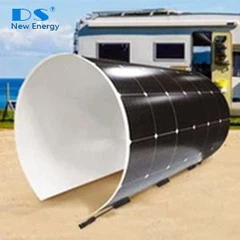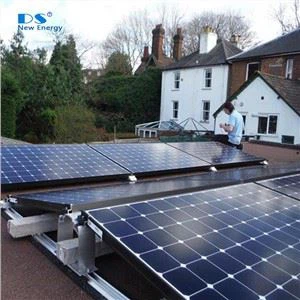
Gov. Gretchen Whitmer speaks before signing clean energy legislation at Detroit's Eastern Market, Nov. 28, 2023|Whitmer office photo
Held at Detroit's Eastern Market, the ceremony followed House passage earlier this month of a half-a-dozen pieces of climate change legislation from Democrats that address, among other issues, clean energy standards, energy waste and affordability, and providing state regulators authority over permitting clean energy projects.

Gov. Gretchen Whitmer signs clean energy legislation at Detroit's Eastern Market, Nov. 28, 2023|Jon King
"We've been working toward this day for a long time. I unrolled the MI Healthy Climate Plan in 2021 and informed by a lot of stakeholders and a lot of educated minds with the thought, 'How can Michigan become a leader?' We outlined a lot of goals in these bills. Our plans were ambitious. We had no idea what the legislature would look like in 2023, but we knew the clock was ticking. And look at us now with this crop of legislators who took this on, who did the hard work. We got it done."
Whitmer said the bills will lower household utility costs by an average of $145 a year, create 160,000 "good-paying" jobs, and bring nearly $8 billion of federal tax dollars home to Michigan for clean energy projects. With the signing, she said Michigan becomes a national leader on clean energy.
Senate Bill 271, which requires energy companies to meet a 100% clean energy standard by 2040
Senate Bill 273, which increases the state's energy waste reduction standards and creates goals for further energy savings.
Senate Bill 277, which allows farmers to rent out their land for solar energy generation while still participating in the state's farmland and open space preservation program.
Senate Bill 502, which instructs the Michigan Public Service Commission (MPSC) - the body that regulates Michigan energy companies - to weigh factors like equity, environmental justice, affordability, public health and more when reviewing energy companies' operations plans.
Senate Bill 519, which creates a new Community and Worker Economic Transition Office within the state Department of Labor and Economic Opportunity, aimed at facilitating the shift from fossil fuel to clean energy jobs.
House Bill 5120, which provides the Michigan Public Service Commission (MPSC) with the authority to approve large scale renewable energy projects - including solar, wind and battery storage – removing that exclusive control from local governments.
State Sen. Sam Singh (D-East Lansing), lead sponsor of SB 273 and SB 519 in the package, said that the legislation demonstrates through what he called "bold action" a commitment to creating a sustainable future that works equally for residents, communities, workers and the economy.
"Dark days are ahead for Michiganders under these backwards new laws that will prematurely ditch reliable natural gas power plants and require vastly more wind and solar," said state Rep. Mike Harris (R-Waterford). "These heavy-handed laws will force people to hand more money to big utility companies while getting less reliable electricity and suffering more blackouts as a result. On top of all that, Michigan's rural communities will be upended as the governor's hand-picked bureaucrats veto local decisions and put wind and solar farms in any community they please. The utilities will rake in profits from this costly, unreliable scheme, but the families, schools, and small businesses of Michigan will pay the price - and many people will leave for brighter, more affordable states."
Meanwhile, the Michigan Environmental Justice Coalition has expressed opposition to a key part of the package, SB 271, which requires energy companies to generate 60% of their energy from renewable sources by 2035 including biomass, landfill gas made from solid waste, gas from methane digesters using municipal sewage waste, food waste and animal manure, and energy-generating incinerators in operation before Jan. 1.
"Governor Whitmer and her allies will try to spin the passage of SB271 as a victory for climate and environmental justice," said Juan Jhong-Chung, Michigan Environmental Justice Coalition Co-Executive Director. "
Evergreen Action Midwest Senior Policy and Advocacy Manager Courtney Bourgoin said the 100% clean energy standard sets an example for industrial states across the country.
Another piece of the legislation that has drawn criticism is HB 5120, which grants the MPSC final say on permits for large scale renewable energy projects - including solar energy developments with a capacity of 50 megawatts or more; wind facilities with 100 megawatts or more; and energy storage facilities with a capacity of 50 megawatts or more and a discharge capacity of 200 megawatts or greater.
While critics say the bill removes control over those types of projects from local governments, advocates note that it still requires energy companies to work with municipalities whose permitting process mirrors that of the state, giving the two parties 120 days to reach an agreement. They can also apply for an extension for another 120 days.
To that point, House Majority Floor Leader Abraham Aiyash (D-Hamtramck), who sponsored HB 5120, said having that flexibility was critical to Michigan becoming a leader in green energy.
"Back in early 2021, when I built the MI Healthy Climate Plan, I read two letters that I received from fourth graders named Lily and Maddie," Whitmer continued. "They wrote about rising water levels and decreasing biodiversity. They urged us to take climate action. Well, I hope those fourth graders are now enjoying seventh grade and I hope they are proud."

















